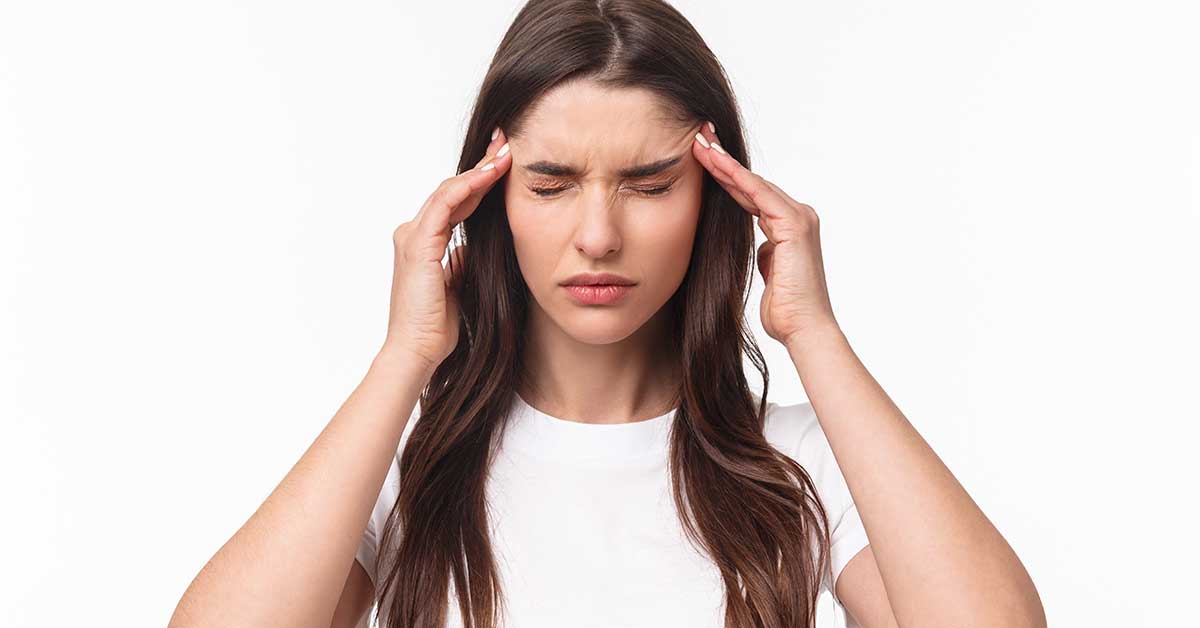Being stressed is not something that’s all in your head. It has a number of significant, detrimental effects on your health. Researchers are discovering more and more negative ways that stress impacts your health, and how it can even have intergenerational effects. Take a look at this list of ways that stress can affect both your physical and mental health.
1) Poor Self-Confidence
Stress is a huge factor in our self-confidence. Not only can it directly lead to chronic anxiety, which comes with its own struggles, but studies also show that
stress itself can attack your confidence. While some work better under pressure, this can have a detrimental effect on many people.
2) Negative Thinking
Negative thinking often ties into poor self-confidence. Ruminating on negative thoughts can often spiral into
negative thought patterns and other thought symptoms associated with mental health struggles. All-or-nothing thinking, overgeneralization, and disqualifying positive experiences are some examples of ways stress can affect your thinking.
Another issue that often arises in people with chronic stress is negative self-talk. This is the inner dialogue you have with yourself that reinforces the negative thoughts you have. These might include feelings of worthlessness, or feeling like you have an inability to get out of your own way. Unfortunately, this kind of self-talk can often prevent you from making positive lifestyle changes and keeps you stuck in a cycle of negative thinking.
3) Lack of Communication and Self-Isolation
Chronic stress can lead you to shut down. Often, part of this is isolating yourself from other people. Asking for help becomes much more difficult, and your stress can spiral into something more. Social activities feel like a chore, and talking to other people about your stress can feel pointless or draining.
Self-Isolation can be one of the most difficult aspects of stress to overcome, as it shuts you off from your support system. It’s important to stay connected when dealing with any kind of mental health struggle, and chronic stress is no different. If you’re finding it difficult to get out of the house, look for easier methods to stay connected. Texting friends,
talking to a psychiatrist online, or even just connecting with people on an online platform can help you get support more easily.
4) Over-Irritability
Stress can make you irritable and give you a hairpin trigger. This is often one of the most easily identifiable symptoms of stress. You’re on edge, you snap at people, and can lash out over little things. Don’t let it become your norm. When you’re stressed, try to recognize what could trigger an outburst. If you can’t remove yourself from a stressful situation, you can at least try to mitigate your reactions when possible.
5) Lack of Motivation
Often stress can lead to other mental struggles. One of the most common symptoms is lack of motivation. This can present itself as a general sense of lethargy, or sometimes an inability to start activities due to feeling out of control. Either way, this can take a toll on your mental health, and then feed your stress. When stressed, try starting with small activities, like making your bed. This can give you a sense of accomplishment, and get you into a productive groove.
6) Poor Sleeping Habits
Stress often affects both how we sleep, and our sleep hygiene.
Sleep deprivation is dangerous on its own, especially so when combined with chronic stress. It can lead to memory issues, heart disease, increased anxiety, and compound other stress factors.
Getting enough sleep is important for healthy living and has a number of benefits. If you’re struggling to get enough sleep, try to adjust your nighttime routine. Sleep hygiene is all the stuff you do leading up to going to bed, and it's to keep your sleep squeaky clean. Put your phone away early, skip the late-night snack, and get some exercise. These habits will all help you have better sleep.
7) Under/Over-eating
Your brain and stomach are heavily linked. There are studies that show
gut bacteria can affect anxiety levels. It’s no surprise then that when you feel stressed, it affects your eating habits. For some people, extreme stress causes them to overeat, seeking the dopamine that food can give them. However, it can also cause other people to stop eating entirely. Sometimes the anxiety of picking what to eat can be too much, or sometimes the stress masks the feeling of hunger altogether.
8) Lowered Libido
Stress can also have a potent effect on your sex life. While having performance anxiety can lead to
sexual dysfunctions like ED, stress itself actually has an effect on how your body processes hormones. Cortisol is the hormone that is most associated with stress. When you have high-stress levels, your body produces more, and at a high level, it can decrease your sex drive. On top of that, when you are incredibly stressed, your brain turns to your sex hormones to help it produce enough cortisol. This can trick your brain later into thinking it’s stressed when you’re in the mood.
9) Weight Gain
This is often tied with eating, but
stress also can affect your metabolism, so even people whose eating habits don't change can experience this. However, cortisol can also stimulate your appetite for sweets, salty or fatty foods, which can lead to weight gain. If you struggle with stress eating and
weight gain, take some precautionary steps like keeping your comfort foods out of your home for a few days.
10) Workplace
Stress doesn’t only affect your personal life. Work is often the biggest stressor in our lives, and in return, suffer from being stressed.
A report in the American Institute of Stress claimed that 40% of workers reported their job as “very or extremely stressful” and that 20% reported it as the number one stressor in their lives.
All the different symptoms of stress can affect your work significantly. Lack of sleep can attack your focus, and you might more easily snap at coworkers. Moreover, your quality of work can suffer as you struggle with your mental health.
Managing anxiety at work is an important skill to develop in the modern workforce.
11) Depression and Feelings of Loneliness
Like an open wound can get infected, untreated stress can lead to other mental health concerns. Often, chronic stress leads to anxiety, which in turn can lead to more serious mental health concerns like depression. Sometimes, it can happen without us even realizing it. If you struggle with chronic stress, it’s very important to keep tabs on your mental health. Noticing significant symptoms early, seeing if they get worse, or if you start presenting signs of issues like depression can be important for getting you treatment. Listed below are the
key symptoms of depression to look out for:
● Extreme feelings of sadness
● New loss of interest in hobbies or activities
● Feelings of worthlessness, or fixation on past failures
● New fatigue of lack of energy
If you start dealing with these issues with your stress, it might be time to speak to a professional. Talk to your doctor about them. They might refer you to a psychiatrist or for counseling, or have insight on their own.
12) Heart Disease
Perhaps one of the most significant direct effects of stress is the risk of heart disease. Inflammation in the body can increase blood pressure, which can negatively affect heart health. Moreover, many of the indirect factors of stress, like smoking or developing a sedentary lifestyle, also increase your risk of cardiovascular issues. One important way to stay on top of your heart health is regular cardio exercise. Running, biking or even swimming can all decrease the risk of heart disease, and also have mood-related benefits that can help lower stress levels.
13) Substance Abuse
Self-medicating is a common tactic for people who are stressed. Unfortunately, your body is more prone to become reliant on substances when dealing with stress. Alcohol or nicotine are commonly used to self-medicate but unfortunately can exacerbate the health concerns that stress has, and have life-threatening concerns on themselves. Moreover, the stress of trying to quit can make the whole effortless than pointless. If you’re starting to turn to substances to help with your stress, look towards other outlets. It might just save your life.
Going Forward
As you can see, stress can have a major effect on your body. Unfortunately, many of these factors can also lead to other issues. Substance abuse can lead to addiction, weight gain, and stress eating can lead to diabetes and risk of heart disease. Lifestyle changes, therapy, or exercise can all help to lower your stress level. Take some time to reduce your stress levels, and see how it improves your life.














No comments:
Ask your question here